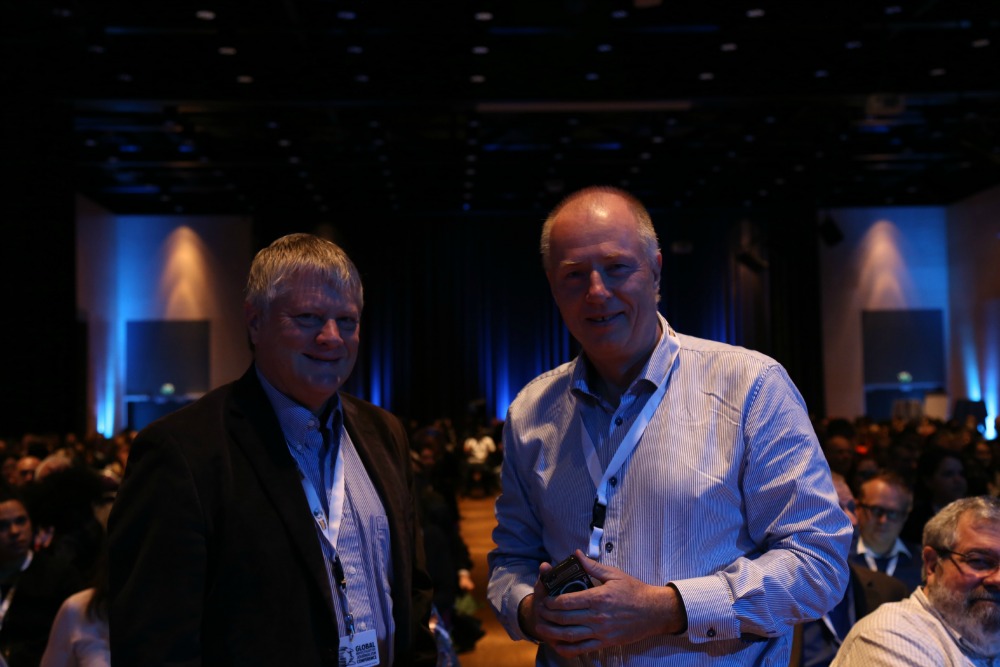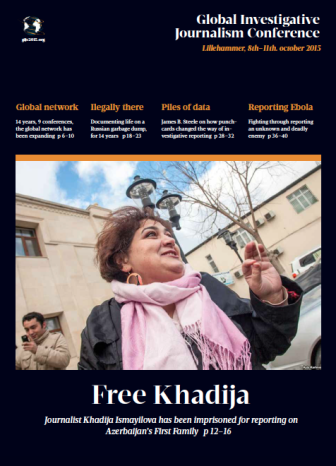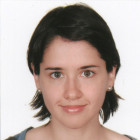
Brant Houston and Nils Mulvad, founders of the Global Investigative Journalism Network. Photo: Harald A. Stolt-Nielsen.
In front of a crowd of over 900 journalists and tech-savvy investigators, footage from some of the year’s most compelling and heart-wrenching stories gave way to start of the 9th Global Investigative Journalism Conference, held in the small Norwegian town of Lillehammer.
At the previous GIJC, held two years ago in Rio de Janeiro, organizers promised to make the conference’s 9th edition a truly global one and so they have, as the event became “the most global and diverse in the entire history of the 14-year-old network, with 900 journalists form a record 120 countries,” said Jan Gunnar Furuly, chairman of SKUP, the Norwegian Foundation for Investigative Journalists, in front of packed-filled room of attendees.
Interwoven in Gunnar’s opening remarks was not only footage of stories broken or covered by reporters—many of whom were present in at the inaugural ceremony—but also stories that remind us just how dangerous investigative journalism has become and just how courageous our colleagues have proven to be
“There are several important people missing in this country, among them those who could not obtain a visa because of the ongoing war in Syria and Yemen, and also, the missing voice of Khadija Ismayilova, sentenced to 7 years imprisonment in Azerbaijan,” Furuly said.
 “The Khadija Project gives a message to the world that investigative journalists are not alone,” he said of the effort to complete Ismayilova’s work—part of a sense of solidarity being displayed this week in Lillehammer through more than 160 workshops and panels where the industry’s best journalists share secrets to their most successful investigative reports.
“The Khadija Project gives a message to the world that investigative journalists are not alone,” he said of the effort to complete Ismayilova’s work—part of a sense of solidarity being displayed this week in Lillehammer through more than 160 workshops and panels where the industry’s best journalists share secrets to their most successful investigative reports.
But this conference, now held for the ninth time, began with no true guarantees, David E. Kaplan, executive director of the Global Investigative Journalism Network, reminded the audience.
The idea that investigative journalists wanted and needed a way to collaborate was a hunch of Nils Mulvad from the Danish International Center for Analytical Reporting and Brant Houston from Investigative Reporters and Editors, back in 2001—when globalization, technology, and the Internet were revolutionizing the media, and the world.
“When the first global conference started in 2001, the organizers didn’t know if anyone would come,” Kaplan said. “Investigative journalists weren’t known for being collaborative, but that is clearly changing.”
Since 2001, nearly 6000 journalists have been trained at the investigative journalism conferences, Kaplan said, making strides in the world of data and computer-assisted reporting, and building up a new generation of data investigative reporters.
Kaplan assured the audience that investigative journalism has grown stronger—relentlessly surviving threats and intimidation, with the rigor and support of of a now tight-knit community. “You are not alone,” Kaplan said.
“The world is one story now,” he added. “So go forth and network, collaborate, and conspire. Some of the greatest stories of the next two years are being talked about in the hallways and bars of this hotel this week,” he said.
 María Paula Brito, a native of Peru, has worked as an associate editor at The Cambodia Daily in Pnom Penh, an online and social media consultant at the Inter-American Development Bank, and an editorial assistant at National Public Radio. She has studied at The London School of Economics and Political Science.
María Paula Brito, a native of Peru, has worked as an associate editor at The Cambodia Daily in Pnom Penh, an online and social media consultant at the Inter-American Development Bank, and an editorial assistant at National Public Radio. She has studied at The London School of Economics and Political Science.
María Paula Brito reports on this event as part of the IACC Young Journalists Initiative, a network reporting on corruption around the globe.
